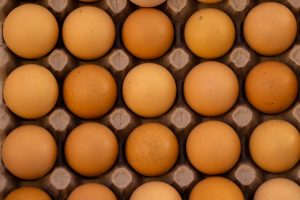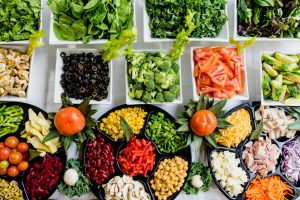Precision Fermentation: The Future of Sustainable Food Ingredients
When we think about the future of food, the possibilities can seem endless. From plant-based meat alternatives to lab-grown burgers, the world of food innovation is constantly evolving. One area that is gaining a lot of attention in recent years is precision fermentation. This method of food production has the potential to revolutionize the way we think about sustainable food ingredients. In this article, we will explore what precision fermentation is, how it works, and why it could be the key to a more sustainable future for our food system.
The Basics of Precision Fermentation
Precision fermentation, also known as microbial fermentation, is a process in which microorganisms are used to produce food ingredients. This method differs from traditional fermentation, as it involves using specific microorganisms and controlling every step of the process to produce a desired outcome. This precision allows for the creation of highly specific and unique food ingredients that cannot be obtained from other methods.
The process starts with the isolation and identification of microorganisms that have desirable properties. These could include specific enzymes, proteins, or other valuable compounds that can be used in food products. Once these microorganisms are identified, they are grown and multiplied in controlled conditions, such as a fermentation tank or bioreactor.
The next step is to feed the microorganisms a specific food source, which is usually a sugar or starch. As the microorganisms consume the food, they produce the desired compounds that can then be extracted and used in various food products. This process allows for the production of a wide range of ingredients, from flavorings and colorings to proteins and other nutrients.
The Benefits of Precision Fermentation
Sustainability
One of the main benefits of precision fermentation is its sustainability. This method of food production uses significantly less resources, such as land, water, and energy, compared to traditional agriculture. It also produces less waste and reduces the environmental impact of food production. With the ever-increasing demand for food and the strain it puts on our planet, precision fermentation could offer a more sustainable solution.
Customization and Versatility
Another advantage of precision fermentation is the ability to customize and create unique ingredients. This method allows for the production of specific compounds that cannot be found in nature, making it possible to create entirely new food products. It also enables food companies to precisely control the flavor, texture, and nutritional content of their products, providing more options for consumers with dietary restrictions or preferences.
Consistency and Quality
Unlike traditional methods of fermentation, precision fermentation allows for consistency in the final product. As every step of the process is carefully controlled, the end result is more predictable and can be replicated with accuracy. This ensures a high level of quality and safety in food ingredients, making them suitable for a wide range of applications.
The Future of Sustainable Food Ingredients
The potential for precision fermentation in the food industry is vast. Already, we are seeing the use of precision fermentation in the production of plant-based meat alternatives, such as the Impossible Burger and Beyond Meat products. These companies use precision fermentation to create heme, a compound that gives the burger its characteristic juicy and meat-like taste.
But precision fermentation is not limited to just plant-based alternatives. It also has the potential to produce animal proteins, such as milk and eggs, without the need for animal farming. This could significantly reduce the environmental impact of animal agriculture while still providing consumers with familiar and in-demand products.
Furthermore, precision fermentation can also produce unique and functional ingredients that can improve the taste, texture, and nutrition of food products. For example, precision fermentation has been used to create a sugar replacement that tastes and behaves like regular sugar but has zero calories.
Conclusion
Precision fermentation has the potential to revolutionize the way we produce food ingredients. Its sustainability, customizability, and consistency make it an attractive option for food companies looking to meet the ever-growing demand for food while reducing their impact on the environment. As this technology continues to advance, we can expect to see a wide range of innovative and sustainable food products hitting the shelves. The future of sustainable food ingredients is precision fermentation, and it’s looking bright.








